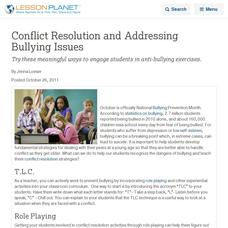Curated OER
How to Write a Summary of a Book
Students explore ways to write book summaries. In this summary writing lesson, students discover the steps for writing summaries of fictional books.
What So Proudly We Hail
A Lesson on Benjamin Franklin’s “Project for Moral Perfection”
Benjamin Franklin identified 13 virtues that he felt would strengthen his character if he could focus on each one. A thorough lesson plan explores high schoolers' personal values in the context of their lives, and compels them to strive...
Novelinks
Count of Monte Cristo: Questioning Strategy – Tossed Terms
Do you know the setting of The Count of Monte Cristo? What about the main characters? Explore the elements of Alexandre Dumas' novel with a reading comprehension activity. Kids toss boxes with literary elements written on each side, and...
CK-12 Foundation
Families of Lines: Room in Perspective
Get a perspective of lines that share a point. The interactive displays a family of lines that share the same y-intercept. Individuals can find the equations of the lines by moving the line displayed and find what is common about all the...
Missouri Department of Elementary
Conflict Mediation – Part 1: Getting Ready
Two scholars walk into a room arguing, what is happening? Peers observe the two actors in preparation for a whole-class discussion about conflict. Learners establish a conflict, name the three approaches—passive, aggressive, and...
Scholastic
Hopes and Dreams
A lesson encourages mini scholars in setting goals. Peers share their hopes and dreams and discuss how each one adds to everyone's unique character. Class members draw themselves in a scene achieving a goal. A follow-up meeting allows...
US Institute of Peace
Responding to Conflict: Negotiation—Identifying Wants and Needs
Let's make a deal! Are real negotiations as simple as they are in the game show? Scholars learn the art of negotiation during the 8th instructional activity in a series of 15. The activity kicks off with a fun group negotiation, then...
Missouri Department of Elementary
Conflict Mediation – Part 2: Practice
A lesson challenges scholars to prove their understanding of conflict mediation. Small groups role-play scenarios using two mediators and two disputants. Peers observe then discuss their findings. A worksheet outlines groups'...
Utah Education Network (UEN)
Reflective Listening Skills
Do you ever feel like your conversation partner is just nodding along as you speak? Encourage teenagers to become reflective listeners with a short activity in which they form responses to assertive statements to reflect what the speaker...
Curated OER
American Civil Rights Movement, Photo Essay
Students view photographs from the Civil Rights Movement and write an essay from the point of view of someone in the photograph. They artistically represent various aspects of the Movement.
Curated OER
Creative Writing
Eleventh graders write a persuasive letter to the editor using the writing process.
Curated OER
Setting Up Camp
Draw on what learners know about conflict resolution and the situation in the Middle East to build understanding of the Camp David summit meeting beginning on July 11, 2000. They develop an understanding of the functions of summit...
Curated OER
The Waterfront Debate
Tenth graders debate a resolution about a planned waterfront community from the point of view of various interest groups. They have a "Town Meeting" in which members from each interest group debate their researched opinions for points....
Curated OER
Conflict Resolution and Addressing Bullying Issues
Helpful ways to engage students in anti-bullying exercises
Curated OER
Ornithology and Real World Science
Double click that mouse because you just found an amazing lesson! This cross-curricular Ornithology lesson incorporates literature, writing, reading informational text, data collection, scientific inquiry, Internet research, art, and...
Curated OER
Elements of Fiction
A wide variety of information regarding the elements of fiction is presented in this PowerPoint. Viewers are directed to trace their hand on a blank piece of paper and label each finger with one of the 5 elements of fiction. Additional...
Curated OER
U.S. Immigration Policy and Hitler's Holocaust
Students read about immigration to the U.S. during the Holocaust. In this immigration activity, students write answers to discussion questions. Students role play members of the 1951 U.N. conference and create guidelines for an...
Qrayon
Inkflow: Think Visually!
Save trees! Save graphite! Save ink! Go paperless! Make a list, mindmap, sketch an idea. Import, scale, rotate, and add text to images. Save content into books and share your creations. All this and more is yours with a free visual...
Kiddie Matters
Goal Setting Worksheet for Children
A one-page worksheet gives scholars the opportunity to list three goals and how they plan to accomplish them. Three questions challenge learners to reflect on their goals.
Endowment of United States Institute of Peace
Active Listening
Ensure that your pupils listen to one another in constructive ways by introducing them to active listening skills through discussion, role playing, and partner work.
Curriculum Corner
Fiction Graphic Organizers
Analyze a fictional text with a four-page packet that explores a story's main character and moral, challenges scholars to ask and answer questions about the text, and to create a story map.
Ashoka
A Toolkit for Promoting Empathy in Schools
Instill kindness with a unit all about empathy. Lessons and activities follow a prepare, engage, reflect, and action sequence. Learning experiences include making the classroom a safe environment, peer-invented handshakes, discussions...
Texas Education Agency (TEA)
It Takes Teamwork!
Using the collaborative resource, learners view a PowerPoint about teamwork, taking notes and discussing what makes an effective leader. They then engage in a fun activity to see which group can build the tallest structure using...
Overcoming Obstacles
Playing by the Rules
The takeaway from the "Playing by the Rules" instructional activity is that it is each person's responsibility to learn the rules in a given situation and that they must accept the consequences if they choose not to follow the stated...

























